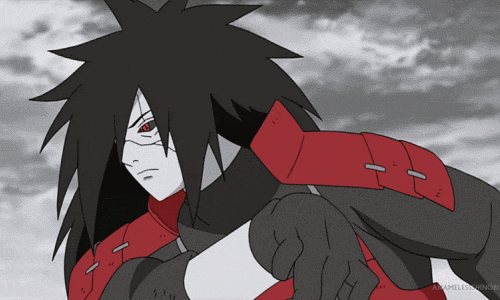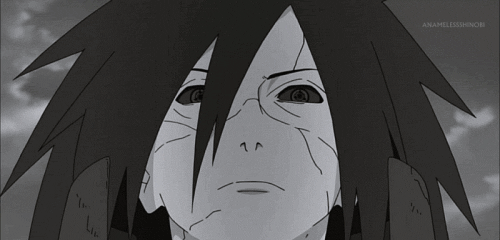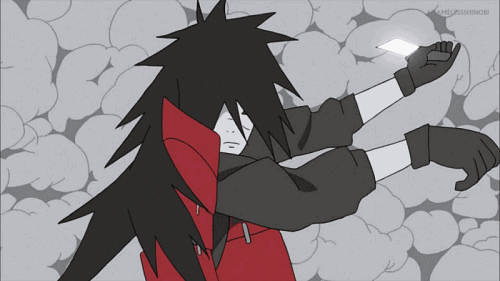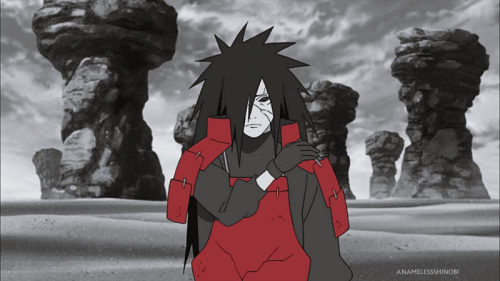Uchiha Madara.





Uchiha Madara.
More Posts from Foolish-neko and Others









FANGS

I lied Here’s new post Too long to explain
You can never know
I just finished project dragon and want to memorize this 'cuz all this situation made me happy.
So, I had this dragon, Felis, for some time now.

Except he had another skin that didn't spark joy to me anymore for some reason. And now he wears this cool cute kitty-cat skin that can't be reprinted anymore because it's old and creator lost that image. So, there will be no new copies. And I wanted this skin so bad for so long, but never found someone who would sell it. I have come to terms with the fact that this is no longer possible. Untill this month. I maneged to buy it!!!!
And not just this one! I bought female version too! And now Felis have a sister, Felisia! She's so cuuute.

I finished her today. And I want to be happy about it!
Also, today I finally saw translation on Susanna Clarke's Piranesi to my native language. Can't wait to buy this book. Trying to find at least something to cheer myself.)
a devastasting video from occupied left bank of Kherson region. A woman and her children plead for evacuation but rescuers nor Ukrainian soldiers cannot physically reach them. orcs left them to die along with other 22 000 - 40 000 people. russia must burn.
a folk song from chapayevka village, chornobyl region
this type of song is called голосіння (holosinnya — "keening"), and they are usually sang by women over the dead body during the period between death and funeral. in this song, the woman is mourning both her dead son, and the land that they were forced to leave due to the chornobyl disaster.
translation under the cut
We went there
The houses are overgrown
Can't see anything over the weeds
Oh my God
Thirty years had passed
Now I can't even recognize
Neither my house, nor my village
Oh my God, oh my God
Oh my son, my nightingale
My son, my little dove
How far they brought us
And I will never come to you again
And will never see you again
Oh, my land, my golden one
My land, my dear one
Oh, how far they brought us
That I can't come to you
Our roads, our paths are overgrown
And our houses, and everything
I can't even recognize
Not the village, nor any of our backyards
We got lost, can't even find our houses
Oh my God, oh my God
I got bored with my dark femboy, whom I was recreating in Souls games, so I created light femboy xD

It was such a good day for him, tho. Makeover, nice walk...

...bonding with donkey.

What Ukrainians ate to survive Holodomor
(translated excerpts from an Історична Правда article): + images source
The villagers would dig up the holes of the polecats to find at least a handful of grain hidden by these animals. They pounded it in a mortar, added a handful of oilcake (from hemp seed), beetroot, potato peelings, and baked something from this mixture.
Those who managed to hide at least a little grain would grind it in iron mills made from wheel axles and cook "zatyrukha" (a concoction made from a small amount of flour ground from ears of grain).
Acacia flowers were boiled and eaten raw, and green quinoa was mixed with crushed corn cobs. Those who could - and this was considered lucky - added a handful of bran. This food made their feet swell and their skin crack.

The peasants dried the husked ears of corn and millet husks, pounded them, ground them with weeds, and cooked soups and baked pancakes. Such dishes were impossible to chew, the body could not digest them, so people had stomach aches. Pancakes, the so-called "matorzhenyky", were made from oilcake and nettle or plantain.
It went so far that peasants would crumble straw into small chips and pound it in a mortar together with millet and buckwheat chaff, and tree bark. All this was mixed with potato peelings, which were very poisonous, and this mixture was used to bake "bread", the consumption of which caused severe stomach diseases.
There were cases when village activists took away and broke millstones, mortars, poured water on the heat in their ovens. After all, anything found or saved from the food had to be cooked on fire, and matches could only be purchased by bartering for their own belongings or by buying them in the city, which was impossible from villagers that were on "black lists".

Chestnuts, aspen and birch bark, buds, reed roots, hawthorn and rose hips, which were the most delicious, were used as food substitutes; various berries, even poisonous ones, were picked; grass seeds were ground into flour; "honey" from sugar beets was cooked, and water brewed with cherry branches was drunk. They also ate the kernels of sunflower seeds.
Newborns had the worst of it, because their mothers had no breast milk. According to testimonies, a mother would let her child suck the drink from the top of the poppy head, and the child would fall asleep for three days.
In early spring, the villagers began to dig up old potato fields. They would bake dumplings from frozen potatoes, grind rotten potatoes in a mash and make pancakes, greasing the frying pan with wheel grease. They also baked "blyuvaly" (transl. "vomities") from such potatoes and oatmeal mixed with water, which was so called because they were very smelly.

They ate mice, rats, frogs, hedgehogs, snakes, beetles, ants, worms, i.e. things that weren't a part of food bans and had never been eaten by people before. The horror of the famine is also evidenced by the consumption of spiders, which are forbidden to kill in Ukrainian society for ritual reasons.
In some areas, slugs were boiled into a soup, and the cartilaginous meat was chopped and mixed with leaves. This prevented swelling of the body and contributed to survival. People caught tadpoles, frogs, lizards, turtles, and mollusks. They boiled them, adding a little salt if there was salt. The starving people caught cranes, storks, and herons, which have been protected in Ukraine for centuries, and their nests were never destroyed. According to folk beliefs, eating stork meat was equated with cannibalism.
The consumption of horse meat began in 1931, before the mass famine. People used to take dead horsemeat from the cemeteries at night, make jelly out of it and salt it for future use.

Dead horses were poured with carbolic acid to prevent people from taking their meat, but it hardly stopped anybody. Dead collective farm pigs were also doused with kerosene to prevent people from dismantling them for food, but this did not help either.
After long periods of starvatiom, the process of digestion is very costing for the human body, and many people who would eat anything would drop dead immediately out of exhaustion.
If a family had a cow hidden somewhere in the forest, they had a chance to survive. People living near forests could hunt/seek out berries and mushrooms, but during winter this wouldn't save them. People living near rivers could fish in secret, but it was banned and punishable by imprisonment/death.
-
 pizzakrvstpugilist liked this · 4 months ago
pizzakrvstpugilist liked this · 4 months ago -
 iidilio liked this · 5 months ago
iidilio liked this · 5 months ago -
 simbilmyne liked this · 5 months ago
simbilmyne liked this · 5 months ago -
 shlnlgaml liked this · 5 months ago
shlnlgaml liked this · 5 months ago -
 mused-like-roses reblogged this · 5 months ago
mused-like-roses reblogged this · 5 months ago -
 mused-like-roses liked this · 5 months ago
mused-like-roses liked this · 5 months ago -
 historias-multorum reblogged this · 5 months ago
historias-multorum reblogged this · 5 months ago -
 shieldmaidenofskellige liked this · 5 months ago
shieldmaidenofskellige liked this · 5 months ago -
 doggone-beauty liked this · 6 months ago
doggone-beauty liked this · 6 months ago -
 chocolatepizzarascaleggs liked this · 7 months ago
chocolatepizzarascaleggs liked this · 7 months ago -
 cognitivecapricorn reblogged this · 11 months ago
cognitivecapricorn reblogged this · 11 months ago -
 vicegranat reblogged this · 11 months ago
vicegranat reblogged this · 11 months ago -
 vicegranat liked this · 1 year ago
vicegranat liked this · 1 year ago -
 puffy21 reblogged this · 1 year ago
puffy21 reblogged this · 1 year ago -
 linya333 reblogged this · 1 year ago
linya333 reblogged this · 1 year ago -
 serpentartist liked this · 1 year ago
serpentartist liked this · 1 year ago -
 fuck-naming-things liked this · 1 year ago
fuck-naming-things liked this · 1 year ago -
 justsomeoneunordinary reblogged this · 1 year ago
justsomeoneunordinary reblogged this · 1 year ago -
 afarransilent liked this · 1 year ago
afarransilent liked this · 1 year ago -
 foolish-neko reblogged this · 1 year ago
foolish-neko reblogged this · 1 year ago -
 foolish-neko liked this · 1 year ago
foolish-neko liked this · 1 year ago -
 magnificentbastardanon liked this · 1 year ago
magnificentbastardanon liked this · 1 year ago -
 vemossmoth reblogged this · 1 year ago
vemossmoth reblogged this · 1 year ago -
 vemossmoth liked this · 1 year ago
vemossmoth liked this · 1 year ago -
 likeanegg reblogged this · 1 year ago
likeanegg reblogged this · 1 year ago -
 likeanegg liked this · 1 year ago
likeanegg liked this · 1 year ago -
 groove-on-boogie-down liked this · 1 year ago
groove-on-boogie-down liked this · 1 year ago -
 luminimal reblogged this · 1 year ago
luminimal reblogged this · 1 year ago -
 miniaturekoaladreamland liked this · 1 year ago
miniaturekoaladreamland liked this · 1 year ago -
 zibelstardust reblogged this · 1 year ago
zibelstardust reblogged this · 1 year ago -
 hashirama-of-the-forest reblogged this · 1 year ago
hashirama-of-the-forest reblogged this · 1 year ago -
 hashirama-of-the-forest liked this · 1 year ago
hashirama-of-the-forest liked this · 1 year ago -
 electronicpaperdiplomatzonk liked this · 1 year ago
electronicpaperdiplomatzonk liked this · 1 year ago -
 runaeveena liked this · 1 year ago
runaeveena liked this · 1 year ago -
 lvsifer reblogged this · 1 year ago
lvsifer reblogged this · 1 year ago -
 blondiekeqing liked this · 1 year ago
blondiekeqing liked this · 1 year ago -
 morpymorpy liked this · 1 year ago
morpymorpy liked this · 1 year ago -
 jneko liked this · 1 year ago
jneko liked this · 1 year ago -
 lycentropy reblogged this · 1 year ago
lycentropy reblogged this · 1 year ago -
 lycentropy liked this · 1 year ago
lycentropy liked this · 1 year ago -
 victoryalixue liked this · 1 year ago
victoryalixue liked this · 1 year ago -
 madarauchimama liked this · 1 year ago
madarauchimama liked this · 1 year ago -
 smilk01 liked this · 1 year ago
smilk01 liked this · 1 year ago -
 otpforever67 liked this · 1 year ago
otpforever67 liked this · 1 year ago







